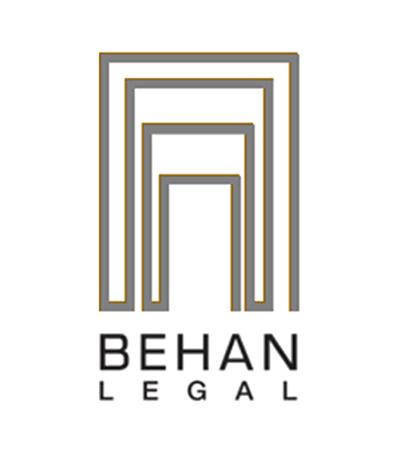Behan Legal Unit Trusts
A trust is an equitable obligation binding a trustee to deal with the trust fund it controls for the benefit of beneficiaries who can enforce the obligation or ensuring the advancement of certain purposes. These elements must exist:
1 Trustee;
2 Beneficiary or unitholder (for unit trusts);
3 Trust fund (or property), and
4 An equitable obligation by the trustee to hold the trust fund for the benefit of beneficiaries.
The trust deed sets out the trust’s purposes, beneficiaries’ rights and obligations, trustee’s powers, and the identity of the beneficiaries, trustee, and Appointor.
PROPER PURPOSE
The proper purpose and use of trusts is to create and protect wealth. Trusts attract asset protection, continuity, succession, and income and capital tax reasons as the preferred method of structuring a business or investment activity. Unit trusts are good where more than one un-related party is involved in buying assets or a business.
UNITHOLDER AGREEMENTS
Often unit trusts can require a unitholder agreement, which sets out the rights and obligations of each unitholder. This can includes buying and selling units, or selling the underlying assets of the unit trust and winding up the unit trust. A trust deed only sets out the relationship between the trustee and unitholders.
UNIT TRUSTS (OR FIXED TRUSTS)
Unit trusts are good where the rights of the beneficiaries to income and capital are fixed and not subject to any trustee discretion. They consist of units divided amongst the beneficiaries based on how many fixed units each beneficiary (or unitholder) owns. Different unitholders or classes of unitholders can have different rights to income, capital distributions and voting rights determined at the time of issuing the units or as unitholders and the trustee agree upon.
Unlike beneficiaries of discretionary trusts, unitholders have rights to the underlying assets of the trust (adjusted for liabilities) recognized at law as a form of property, which you can buy, or sell and have a distinct value. These rights have a value because the unitholder is entitled to future payments of income and capital, and this means other people are prepared to pay to acquire the unit from the unitholder.
WHAT ARE UNITS?
A unit is an asset entitling the unitholder to a specified proportion of the trust’s income and capital. They are different from shares in companies. Shares do not confer on the holder any legal or equitable interest in the company’s assets, they are a separate piece of property; and if a portion of the company’s assets is distributed amongst shareholders, then whether it comes to them as income or capital depends on whether the corpus of the property (i.e. shares) remains intact despite the distribution. Units confer a proprietary interest in all the assets, which is subject to the trusts of a trust.
Units confer on the unitholder an equitable interest in the underlying capital and income of the trust. Where a unitholder receives a distribution under a trust, its character as capital or income depends on its character in the hands of the trustee. Unit trusts do not have the asset protection advantages for unitholders that discretionary trusts have for beneficiaries because of the nature of the units. However, asset protection is possible by having a discretionary trust hold the units.
TRUSTEE
Preferably, the Trustee should be a company exclusively acting as trustee of the trust. The shareholders and directors control the trustee. The trustee legally owns the trust property but does not beneficially own the trust property. Beneficial ownership of the trust property lies with the unitholders. By using a corporate trustee, then:
1 One has legal ownership of the trust’s assets in the company name confirming the assets do not belong to the individuals who control the company;
2 The company can exist beyond the lifetimes of many beneficiaries; does not die or become unable to manage its own affairs, and
3 Those who control the company can exercise defacto control without being personally involved in the trust
If discretionary trusts own the units, there is asset protection, estate planning and tax advantages. The unitholders as a group control the trust because the trust deed gives them the power to direct the trustee and to terminate the trustee’s appointment appoint another trustee. The deed specifies the percentage vote required for a resolution of a meeting of unitholders to be effective.
Unit trusts combined with private companies, such as corporate beneficiaries can benefit from the 30% tax rate. Some or all of the trust’s net income is taxable in the hands of the company each year. Cash must actually be paid to the corporate beneficiary, and then retained in the corporate unitholder. If this does not happen, there is a risk that anti-avoidance rules applying to private company loans may apply.
Other advantages of unit trusts include:
1 There is confidentiality about the trust’s financial affairs. There are no statutory disclosure requirements for trusts as for companies under ASIC requirements. There is no requirement for a trustee dealing with other persons to disclose that it is acting as a trustee of a trust and not in its own right. It is legal to open bank accounts, execute leases, and make investments for the benefit of the trust without others knowing the underlying structure;
2 There are no formal audit requirements. Accounts have to be prepared but this is only to facilitate the preparation of an annual income tax return;
3 There is an absence of formal legislative framework, such as Corporations Law to control the activities of a trustee. Trusts are subject to the various Trustee Acts, and other laws, for example, Trade Practices and Income Tax. This makes trusts flexible entities to use for business activities;
4 The easy entry and exit of owners, i.e. Unitholders
The major disadvantage of a unit trust is that it cannot distribute capital or revenue losses to its unitholders. As a result, if a trust incurs a net loss, its beneficiaries cannot offset that loss against any other assessable income that they may derive. The trust finishes 80 years from the establishment date unless the unitholders determine a shorter period. 80 years is a statutory period based on the rule against perpetuities, which prevents a trust running forever and a deceased controlling property from the grave.
The trustee is the legal owner of the trust’s property. The trustee’s name will appear on all ownership documents, such as shares in private companies, units in private trusts, or title deeds for land ownership.
THE TAXATION OF UNIT TRUSTS
Unit trusts are efficient tax planning vehicles. Usually unit trusts do not pay tax themselves. Instead, the net income flows through them and attributable to the unitholders. The amount of tax paid by the unitholders depends on their individual tax situation and structure. The trusts usually allow franking credits, dividend rebates, and different classes of income, capital gains, and other tax amounts having particular tax consequences to flow through the trust to the appropriate unitholders.
THE DUTIES OF A TRUSTEE
The dominant duty of a trustee of a unit trust is to exercise the utmost good faith towards the unitholders and to observe the trust deed and all relevant laws at all times. The trustee must put the interests of the beneficiaries ahead of its interests at all times and act in a competent and responsible manner.
These duties require the Trustee to:
1 Be familiar with the terms of the trust;
2 Hold and manage the trust property, ensuring all records show the trustee as owner;
3 Observe procedures or processes set down in the trust deed at all times;
4 Exercise reasonable care with the same care and skill a reasonable man would take for his own affairs;
5 Not, delegate the trustee’s duties except as permitted under the deed or by law;
6 Invest the trust’s assets according to the Trustee Act 1958 (as amended) and any special rules set out in the trust deed;
7 Act impartially between unitholders and classes of unitholders that are subject to the trust deed, and any special terms or conditions attaching to the units;
8 Maintain proper and complete books of accounts, minutes of trustees and directors meetings. Minutes of trustees and directors meetings should record all major transactions entered by the trustee;
9 Deal with the trust property properly and not for the trustee’s own benefit;
10 Prepare and lodge tax returns for the trust each year, and comply with income tax and related laws;
11 Keep the trust’s assets separate from other assets owned by the trustee, and
12 Insure the trust’s assets, where appropriate.
NEED MORE INFORMATION
Behan Legal assists and advises on these important issues. For an appointment, call 03 9646 0344.


